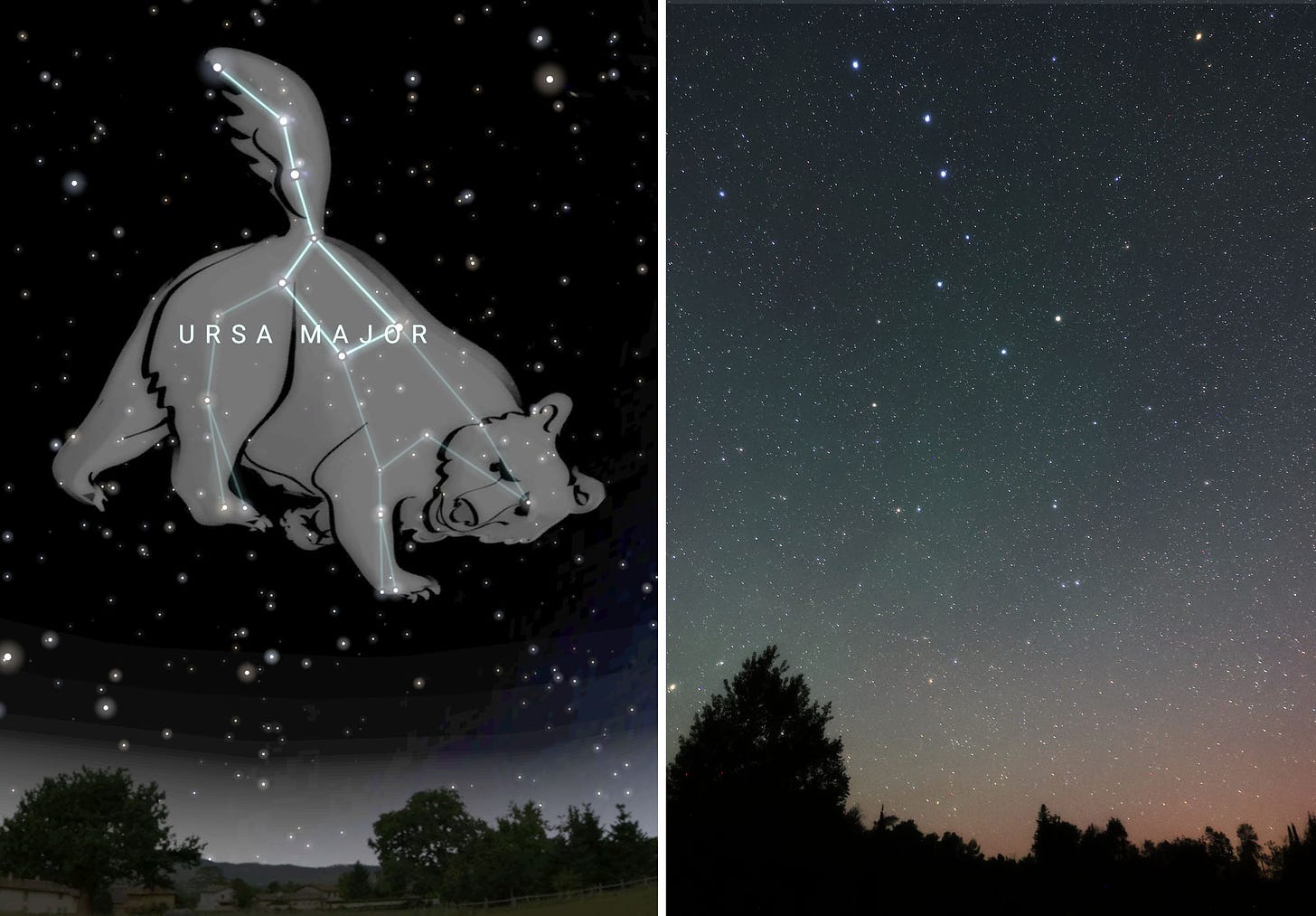A Compilation of Poems to Carry in the Blood
Short, sweet listens from our recent community jam
Welcome to Quiet Reading, a weekly refuge for our shared humanity, inspired by authors, books, and this world of marvels. Today’s post wraps up our latest community jamboree. Below you’ll find links to video and audio posts from members of the Quiet Reading community sharing poems they are glad to carry in their blood. To view the entire post, click on the heading in email.
If you’d like some recommendations about poems to learn by heart and carry in your blood, readers suggested dozens at the beginning of this adventure. Also, the daily letter “Poems Ancient and Modern” by and reprints and comments on a wide range of poems, including some metrical classics that are relatively easy to memorize.
Let’s hear some poems, shall we? Enjoy!
Poetry Out of Doors
and recorded their recitations outdoors, which gives you a hint about the poems they chose. Take a light jacket and a good pair of trail boots to join Zina and poet Sara Teasdale in appreciation of “soft rains.” Step out under the nearest trees to hear Priscilla and A. E. Housman decide to take no season of life for granted:- reads “There Will Come Soft Rains,” by Sara Teasdale.
- reads A. E. Housman’s “Loveliest of Trees” and tells us what was happening in her life when this poem found her, many seasons ago. “Certain doors inside of me were creaking open, and somehow these poems were related to it. I needed them to oil those hinges, to keep those doors from ever closing again.”
What Families Carry
Parenting and caregiving open us to every shade of joy and grief. It takes a poet to capture the particular glint of each experience.
reads a poem about family resemblances seen in a child 🎣 (“I believe he is a son of light”). Watch hold her son and granddaughter in mind while reading E. E. Cummings, and there will be no doubt about what it means to “carry your heart with me.” ❤️- reads “Genes,” by Sharon Dunn.
Mary Tabor "Only connect ..." makes the unconventional lines of E. E. Cummings’s “[i carry your heart with me(i carry it in]” seem perfectly natural.
Foreshadowing Winter

Put on your hat and mittens to join
by her fire, and let her captivate you with an old-fashioned yarn by Robert Service about the fearful cold of the North country. And before you “curl up in [your] cave to dream of fish,” sidle over to ’s place to merge your identity with “Ursa Major.” One of these poems will send you sweetly into hibernation; the other might keep you up on watch, adding logs to the fire. Now — which one is which?- , reads “Ursa Major,” by himself. Winter has never approached with such charm.
- , “The Cremation of Sam McGee,” by Robert Service. - Holly is a natural-born balladeer. You might also enjoy her original photos of Service’s North.
The World Is Charged
Who said anything about winter? It’s spring in
’s selection, the famed opening lines of Chaucer’s General Prologue to the Canterbury Tales. And reads “Pied Beauty,” by Gerard Manley Hopkins, in praise of “couple-color,” stippled spots, freckles, and the over-spilling abundance of creation. “The world is charged / with the grandeur of God,” as Hopkins writes in another poem. These readings celebrate that grandeur:- dusts off her Middle English to share the first 18 lines of the Canterbury Tales. When April, with her sweet showers, has pierced the drought of March to the root and bathed every vein (of plants) in the liquid from which flowers come, … then Nature pricks their hearts, and folks long to go on pilgrimages.
- reads “Pied Beauty” by Gerard Manley Hopkins, with the famous opening line, “Glory be to God for dappled things” — an anthem for freckled people everywhere. (I raise my hand.)
Patriotism

- reads two excerpts: From Sir Walter Scott’s “Lay of the Last Minstrel” (Canto 6) and from The Aeneid, by Vergil (Latin & English).
- reads an excerpt from “The Cure at Troy,” by Seamus Heaney.
Stillness in Time

The poems chosen by
and notice something true and still in the midst of rushing change. W. B. Yeats’s “When You Are Old” is the still thing, endlessly imagining the beloved in the future, and Jay’s original poem, “A Stone in Water,” seeks and finds “Stillness at the bottom of motion, the substance at the center of life.” Your Quiet Reading host loves poems like these that hold still while life advances:- , “A Stone in Water,” originally published in the Tipton Poetry Journal and reprinted in his collection Waiting for Word (2021).
- reads “When You Are Old,” by W. B. Yeats.
Yes, with Thanks
Every poem in this compilation has something powerfully affirmative in its lines. Two of the most striking in that regard were Rumi’s “Say yes quickly,” read by
, and a poem of thanks from E. E. Cummings, offered by . You must simply hear them:- , “Say yes quickly,” by Rumi.
- reads E. E. Cummings’s “i thank you god for most this amazing.”
Never Too Old to Play
For my own contribution to this frolic, I chose the path less traveled between “silly” and “solemn.” Seated on a spiral staircase with bars like those of a zoo and evening shadows on the wall, I recited “The Spangled Pandemonium,” by children’s author Palmer Brown.
Save this page and come back to it when you want to set down your burdens, or take company with others who share in the general human mess/slog story.
Your Turn
When you’ve had a chance to listen to a few poems (nearly all of which are quite short - so it’s quite possible to hear them all), come back to the comments and make your own connections. Which poems would you put together and why?
If you didn’t have a chance to suggest a poem to carry in the blood when I asked in September, feel free to add your own recommendation in the comments below.
Click the heart button and share this post if you found something in it to enjoy. Your “clicks” help Artificial Intelligence wave this post in front of Actual Human Intelligence, and then, who knows? We humans are mysterious.
Subscribe to the newsletters of anyone you enjoy from this compilation. Tell your friends about them, too. Writers love readers. :-)

Coming Up
I’ll be keeping a lighter schedule in November, with posts coming up every two weeks after today. On the schedule for December is a post I’ve been saving since I started this letter — about a particular occasion of music, poetry, and youth — that I’ve carried in the blood. More on that to come.
I wish you a peaceful week ahead. We’re entering into a stressful few days for U.S. voters and everyone in the world who wishes they had a vote. Very soon our friend
will observe an anniversary of mourning on the same day my family will be celebrating my oldest nephew’s birthday. Your November surely contains some occasions, too. All these threads in the fabric are why we turn to poems.Thank you to all who have offered theirs here to share!! I’m so delighted by your company.
And thank you, readers!! To the new subscribers who have arrived in the last few weeks and are still checking out Quiet Reading, we do collaborations and community writing events like this every few months, alternating with hidden backstories of authors, unique readings of stirring books, and light whimsies that change with the season. It’s a pleasure to write for you!
(Please let me know in a comment or a direct message if you tried to participate and I missed you. I’ll be glad to add anyone I missed.)

















TARA PENRY LIKED GRACIAS
GRACIAS Y FELICES UNA RECOPILACION DE POEMAS PARA LLEVAR EN EL